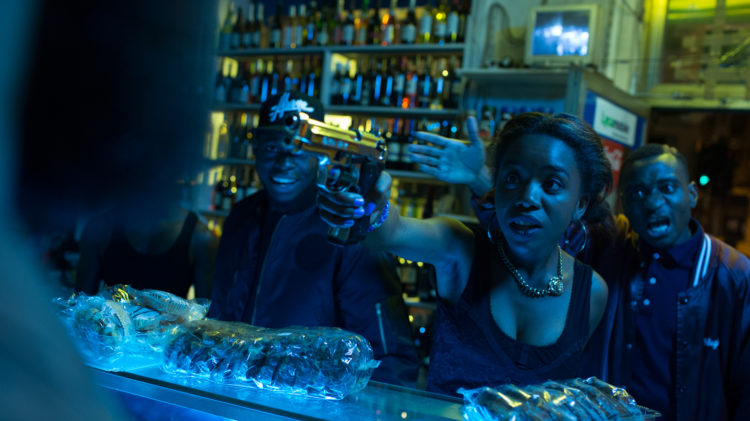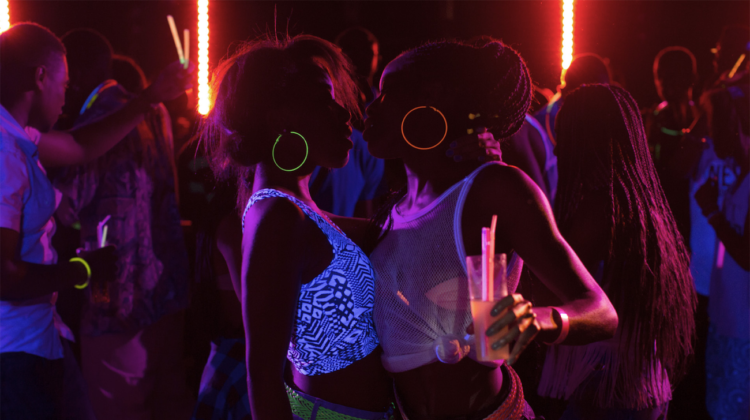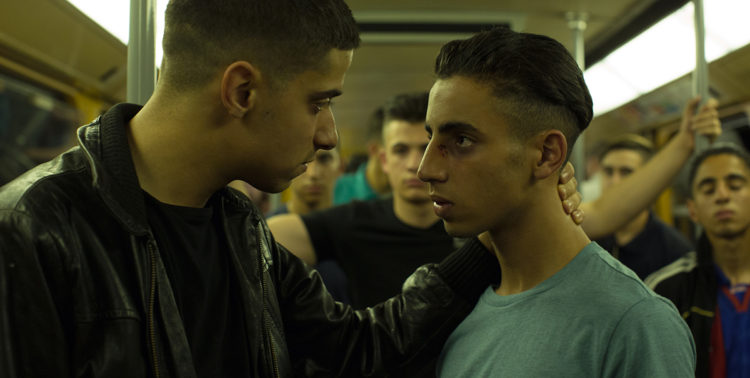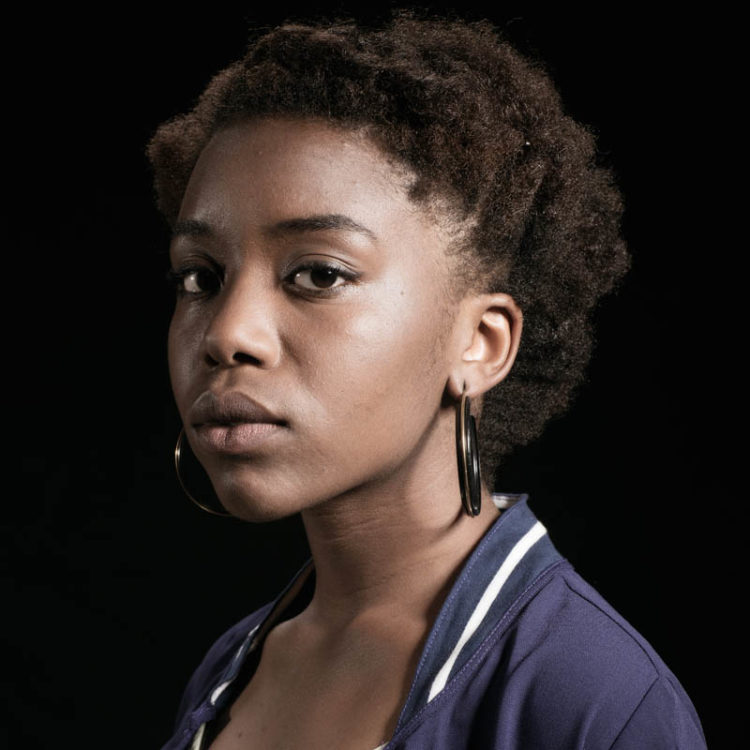Black is the controversial Belgian film by Moroccan-Belgian filmmakers Adil El Arbi and Bilall Fallah.
150,000 tickets were sold to see the film during the opening weekend in Belgium and releases are set for Italy and Portugal in July (it’s already out in Switzerland) and Spain and the UK this summer.
But the film has been banned in France since February. It may be violently brutal, in a way that’s only really seen in American-style movies, but Black also has a Shakespearian quality as it dives into the heart of Brussel’s suburbs.
The story follows a doomed romance between Fifteen-year-old Mavela, member of the notorious gang Black Bronx as she falls for rival gang member Marwan of the 1080-ers. Martha Canga Antonio who plays the heroine of the film gives her side to the story that is Black.
The film started with a street casting, broadcasted on social media. Why did you decide to go?
Martha: I had read the book Black. It is well known in Flanders, we even read it at school. I wanted to try something new too. I have cousins who are actresses. I thought: why not, you’ve got nothing to lose.
I auditioned three times. The first time we had to improvise being scared as we waited for a bus and were attacked. The second time it was the opposite, we had to defend ourselves. And then we did some rehearsals to get to know each other. We read the script, we saw three films, like La Haine by Kassovitz.
How was the shooting? What was the hardest part to play?
We shot for thirty days, during the summer. Sometimes from early morning to late evening. It was a tough rhythm, we had to give everything very quickly. It was not easy but we managed to get the result we wanted. It was even better than I thought. I was shocked. The movie is very beautiful. When shooting stops, it is difficult. We were together all the time and suddenly it was over.
*Spoiler alert below*
The hardest to play was the scene of the bathroom, after the rape, when she collapses and she realises what’s happened. For the other scenes, such as the rape, I had to form a distinction between me and the character. I prepared myself. When you play, you are confronted with yourself. You have to play and give a part of yourself to make it credible, find a common ground with the character.
The film has been described as an ‘American-style’ film. What does that mean? That it is violent and appeals to young people?
The images are a bit Hollywood-style. It’s not like a typical Belgian or European film. The way it is told, the music, the action, it could have been shot in the US, it would be the same.
I’ve never seen a movie like this in Belgium.
Brussels is seen in another way and that’s cool. This is rather new for the Belgians. I’ve never seen a movie like this in Belgium.
Violence does not please anyone. It is the reality of these gangs but not of today’s youth. You face this violence when you are inside these gangs. It is based on real events. That is why it is violent.
This is why the film shocked so many people? And was banned in France?
Martha: There was something about Black that people did not want to see, hear or accept. Even before the movie came out, people were shocked. There was a fear of riots, urban gangs and racism. I have been criticised; people did not understand why I had played Mavela. Finally, they saw it and they said it was fine.
Two days after the film release, the terrorist attacks in Paris happened. The film was banned in France, because the subject is ‘too sensitive’ now. But it is prejudice from those who have not seen the movie. It was much more censored than the book, but at least we talked about it, it opened the discussion, it shows that these gangs are not cool.
What would be the reaction in Africa by watching this film?
People in Africa would be shocked to watch this film, to see what is happening here in Europe, especially in a capital city.
What is the story of the film? The diaspora in Brussels? Blacks and Arabs? A love story?
Martha: It’s not a film about the diaspora in Belgium, nor blacks and Arabs in Brussels. It does not represent Arabs or blacks. This film is about urban gangs. It is not a documentary, it is art.
Black does not represent anyone I know.
The filmmakers wanted to make a good film, and have the opportunity to show the issue of urban gangs in Brussels. Young people, in a gang, are people. They exist, and they are excluded from society.
It is also a story about a teenager becoming an adult. She believes that she knows everything and she is very stubborn. And because of her wrong choices, she falls into traps. If we take out the context of the urban gangs, it is a Romeo and Juliet which everyone can identify with.
With this story, I do not feel represented or described as black. Black does not represent anyone I know. I identified myself with a fifteen-year-old girl who seeks self-identity, with characters that make very bad choices.
But the title, Black, is because the heroin is black?
Black is the colour of her skin, yes, and also because she falls into a black hole. She changes her mind, she changes everything. This is a name for all the changes in her. It is also a very dark movie with dark feelings.
The film has only actors of colour, no white ones. Is this a bias? Why is that the case?
In the film there are black people, the main role is held by a black and an Arab. There are no white people. It is primarily the two gangs that are filmed. In 2016 in Belgium and in Europe, we do not see a lot of movies where there are no white people. That shocked people. It was brutal for the audience.
People of colour who saw the film also saw what is possible.
It shows that in art and media, there are people with different names and colours who are Belgian and who have talent. It is hard to believe it when you never see any around on the screen. But many people of colour who saw the film also saw what is possible. Now they will dare to do their absolute best.
Is this the the message of the film?
This is what I want to tell to young people who read what I say. It is important. I feel the change in people’s mindset, with the Internet everywhere there are exchanges that are strengthening and motivating people. We must go forward even if there are racist, ignorant people because there will always be someone who will talk, but that will not stop you.
Talent has no colour, religion, name.
There are more and more young people who couldn’t care less about labels put on them, they do something because they believe in it.
They do not want to slow down anymore. Talent has no colour, religion, name. And if you have no opportunity, you create it. We will not change the world but we will go forward. What makes you different is not negative, even if people make you believe so.
Check out more about Black here




